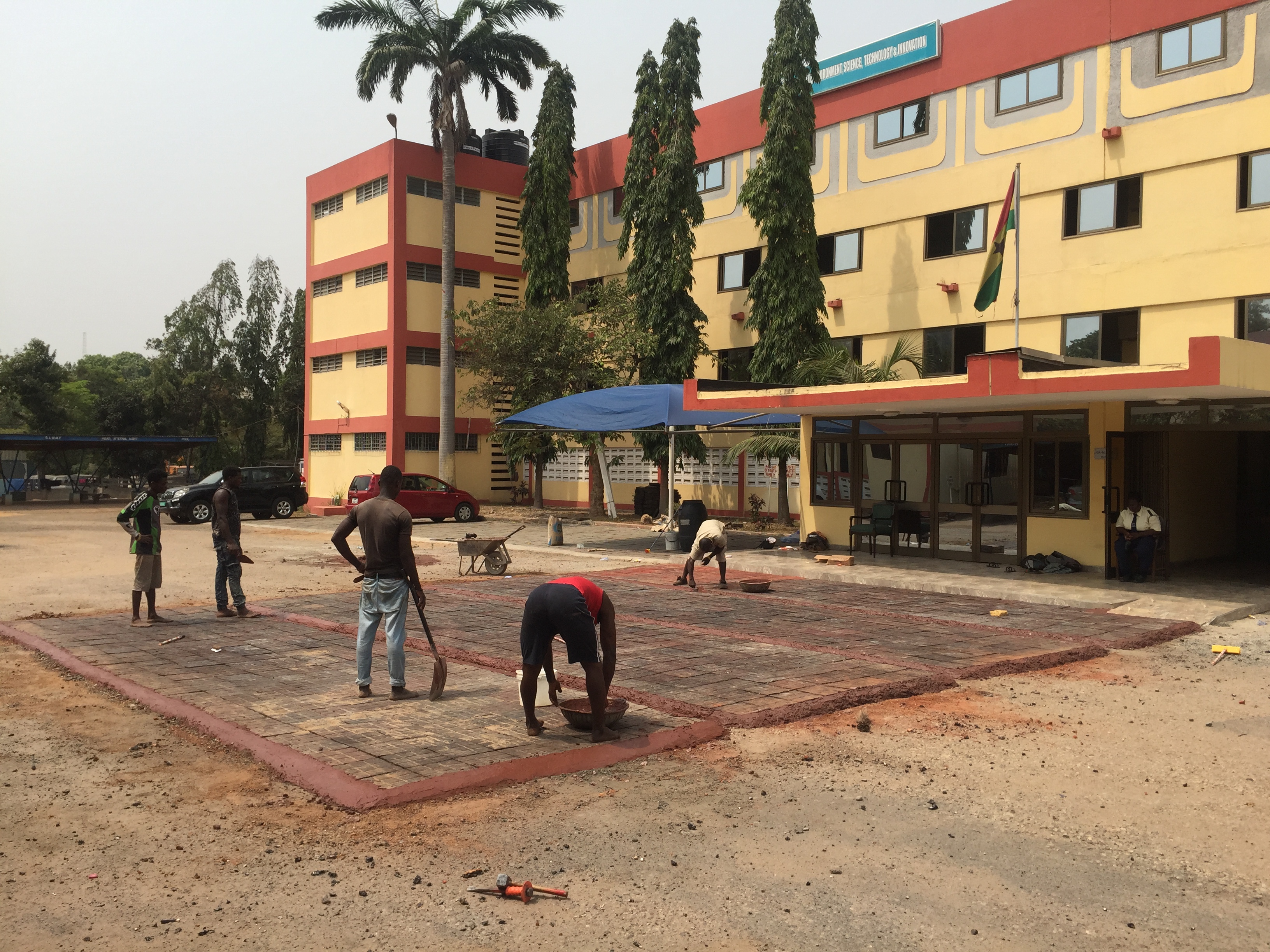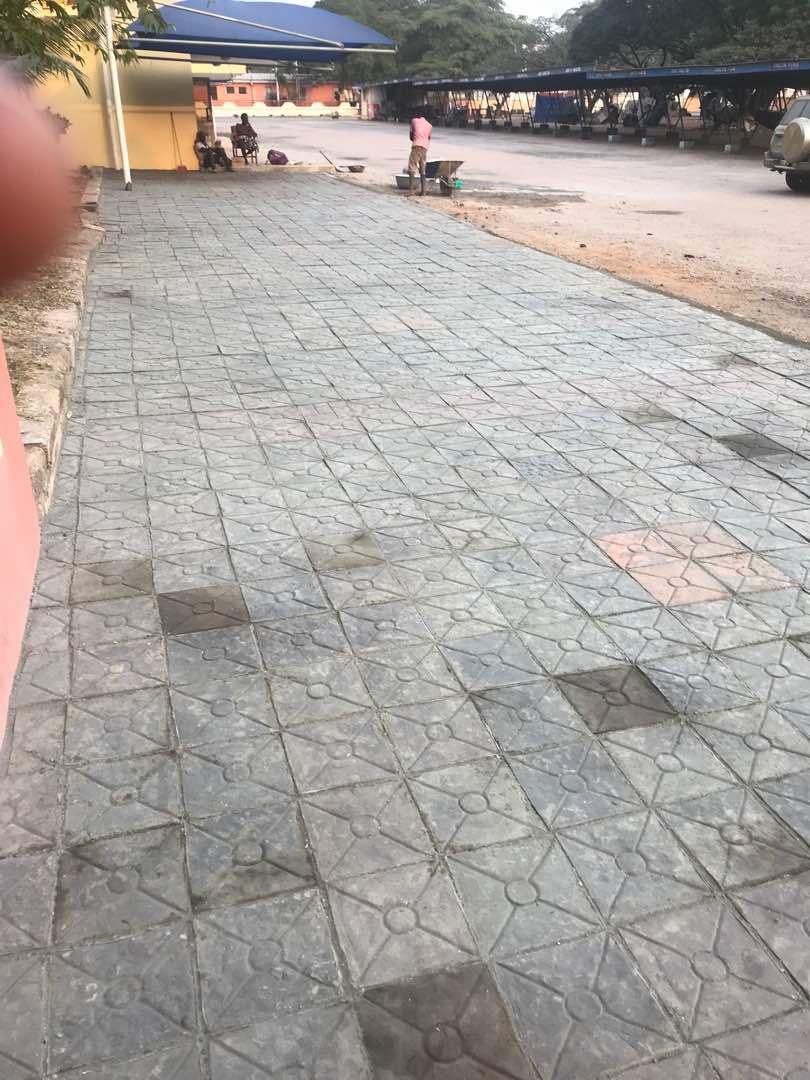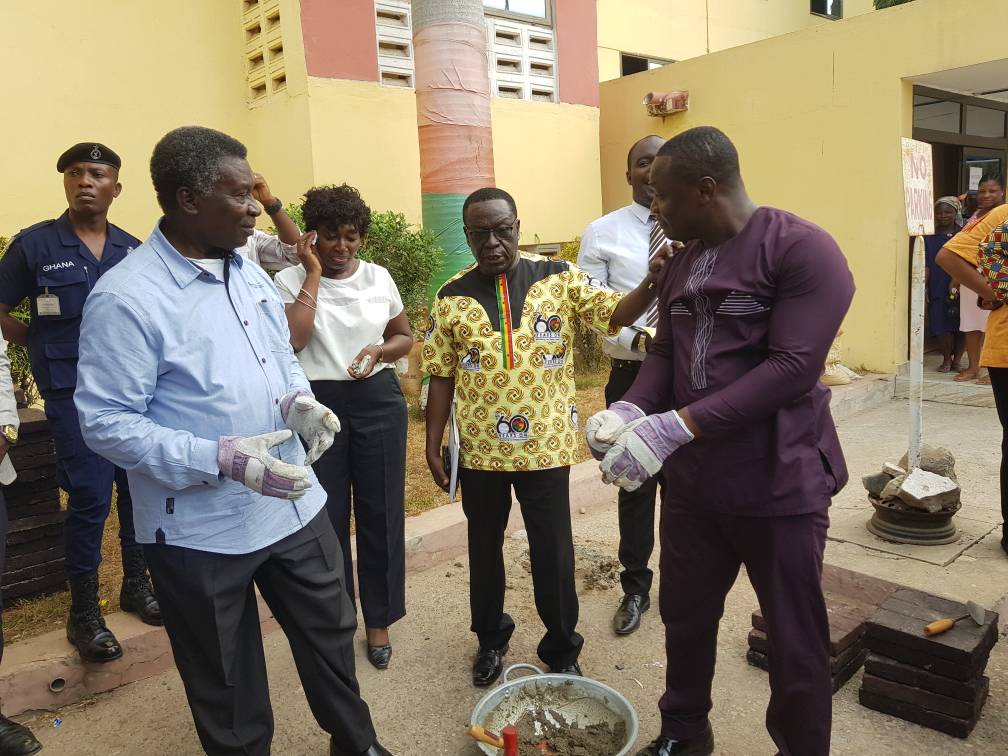[dropcap size=big]A[/dropcap]s featured on inhabitat, only two percent of plastic trash in Ghana is recycled, according to a video from the World Economic Forum (WEF) – but one local company is hoping to change that statistic. Nelplast Ghana Limited, led by Nelson Boateng, which focuses on industrial processing, is turning plastic bags into pavement blocks that can be used to build roads. And it’s not just plastic bags than can be utilized, but just about any kind of plastic garbage.
On the road to a cleaner environment. Learn more: https://t.co/5ioC4M7lsc pic.twitter.com/yioef3AK5j
— World Economic Forum (@wef) March 29, 2018
Mr. Boateng built his own recycling machine from scrap metal, electrical wires and motors, and eight months after, started operations to collect and recycle almost 2000kg of plastic waste from Ashaiman areas—laying some of the plastic pavement blocks free of charge, back in his community. Thanks to his innovation, plastic bags can now have a new life as part of a road. His machine shreds the bags and mixes them with sand to create what WEF describes as “a new form of asphalt.”
 Nelson’s new form of asphalt is made from 60% plastic waste and 40% sand, compared with traditional asphalt, which is made almost completely with aggregate sand. This asphalt, which requires fewer natural resources to create, lasts a longer time, and has greater resilience. And it’s not just plastic bags that can be utilized, but just about any kind of plastic garbage. Nelson believes that just like plastics take about 500 years before they start decomposing, the plastic pavement blocks should last 500 years as they are hard to rot and last longer than cement, and he is now paving roads throughout Ghana.
Nelson’s new form of asphalt is made from 60% plastic waste and 40% sand, compared with traditional asphalt, which is made almost completely with aggregate sand. This asphalt, which requires fewer natural resources to create, lasts a longer time, and has greater resilience. And it’s not just plastic bags that can be utilized, but just about any kind of plastic garbage. Nelson believes that just like plastics take about 500 years before they start decomposing, the plastic pavement blocks should last 500 years as they are hard to rot and last longer than cement, and he is now paving roads throughout Ghana.
WEF’s video said Ghana’s Ministry of Environment already has the paving blocks in one district, and it wants to help Nelplast scale up. In addition to helping clean up the environment, Boateng has created jobs; the company directly and indirectly employs over 230 people.
Nelplast aims “to seek the interest of the environment first in all [their] processes.” For example, the company also sells plastic roofing tiles and offers consulting in launching recycling companies. Their objectives include recycling “about 70 percent of plastics waste generated by the country daily into useful products that can be used for a lifetime.”









